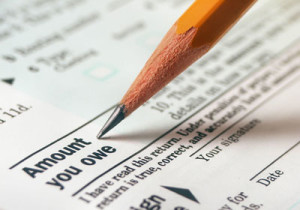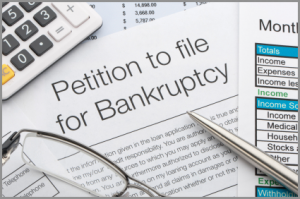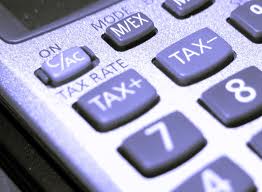"Your Local Tax Problem Solvers Since 1992"
ORLANDO: 407-915-3470
TAMPA: 813-708-5530
Most people think you can’t eliminate taxes in a bankruptcy proceeding. This is not true.
The treatment of tax debts is one of the more complicated areas of federal bankruptcy law, but the Bankruptcy Code offers substantial tax relief to tax debtors who meet certain requirements.
Despite popular belief the Bankruptcy Code offers substantial tax relief to tax debtors who meet certain requirements.
Call us at 407.915.3470, or use our contact form, to get a free consultation.
Whether your bankruptcy will relieve you from your tax debts will depend on several factors including the nature of the tax liability and the type of bankruptcy proceeding you are in.
Income Taxes: Federal income taxes may be discharged in bankruptcy provided they meet the discharge rules explained below under the heading “The Bankruptcy Discharge Rules.” Federal income taxes may be discharged in bankruptcy provided they meet the discharge rules explained below under the heading “The Bankruptcy Discharge Rules.”
Trust Fund Taxes: Trust Fund taxes are those taxes withheld from employee pay checks for social security and Medicare (“employment tax”).
The Orlando and Tampa based tax bankruptcy attorneys of the The Pappas Group have been helping taxpayers discharge and eliminate their tax debts for more than twenty years.
Contact us and find out how we can help you.
The amount withheld includes the employer’s share and the employee’s share of employment tax. A business owner and other responsible persons may be personally liable for the Trust Fund taxes if he or she oversaw the collection and accounting of the tax and made decisions about which creditors the business paid. Trust Fund taxes are not dischargeable in bankruptcy. State sales tax collections are deemed to be held in trust and also cannot be discharged.
 Trust Fund taxes are not dischargeable in bankruptcy. State sales tax collections are deemed to be held in trust and also cannot be discharged.
Trust Fund taxes are not dischargeable in bankruptcy. State sales tax collections are deemed to be held in trust and also cannot be discharged.
Other Taxes: Excise taxes such as estate and gift taxes, sales taxes and fuel taxes are not dischargeable.
Secured Tax Debts: In the course of its collection efforts the IRS has to power to file a tax lien to perfect its tax claim against individuals. A federal tax lien applies to all of the taxpayer’s personal property wherever it is located even if the personal property is outside Florida.
A federal tax lien applies to all of the taxpayer’s personal property wherever it is located even if the personal property is outside Florida.
Call us at 407.915.3470 for a free consultation
 The tax lien encumbers the debtor’s real property only in the county or counties where the IRS files its tax lien. Florida’s homestead exemption does not apply to tax liens. A federal tax lien once filed makes the IRS debt a secured claim in bankruptcy and ineligible for discharge. A tax debt which is not secured by a tax lien on property is treated as a “priority debt” which means that like other priority debts it is to be paid in full before money is available to pay general unsecured bankruptcy creditors.
The tax lien encumbers the debtor’s real property only in the county or counties where the IRS files its tax lien. Florida’s homestead exemption does not apply to tax liens. A federal tax lien once filed makes the IRS debt a secured claim in bankruptcy and ineligible for discharge. A tax debt which is not secured by a tax lien on property is treated as a “priority debt” which means that like other priority debts it is to be paid in full before money is available to pay general unsecured bankruptcy creditors.
All tax debts are eligible for discharge as described above (e.g., income taxes, etc.) except the following:
A tax debt that does not fail any one of the above five tests will be eliminated in a Chapter 7 or a Chapter 13 bankruptcy. In other words, these taxes are dischargeable. The dischargeability test is somewhat different in a Chapter 13 bankruptcy. A Chapter 13 bankruptcy a debtor can discharge:
 If the income tax is dischargeable then so is the interest related to the income tax. Regarding penalties, however, the general rule is that if the event that gave rise to the penalty occurred more than 3 years before the bankruptcy petition was filed, the penalty is dischargeable.
If the income tax is dischargeable then so is the interest related to the income tax. Regarding penalties, however, the general rule is that if the event that gave rise to the penalty occurred more than 3 years before the bankruptcy petition was filed, the penalty is dischargeable.
Chapter 7 bankruptcy will eliminate all dischargeable income tax debts but will not avoid recorded tax liens.
Chapter 13 bankruptcy involves a payment plan approved by the bankruptcy court under which a debtor pays some of his debts and discharges other debts.
There are two basic tax discharge rules in a Chapter 13 bankruptcy:
You can repay the arrears through your plan, over three to five years, and keep the house or car, so long as you keep current on the existing monthly payments. If it’s feasible to pay off the entire loan before the end of your plan, you may be able reduce the amount you have to pay.
You’ll probably have to either give the house or car back to the creditor or arrange to pay its wholesale value in full during your bankruptcy case
The result depends on your circumstances. See Eliminating Tax Debts in Bankruptcy.
The result depends on your circumstances. See Eliminating Tax Debts in Bankruptcy.
You keep all of your property.
You keep all of your property. You must give it up, pay the trustee its fair market value or, if the trustee agrees, swap exempt property of equal value for it.
The creditor may not seek payment from your codebtor for the duration of your case.
The creditor will go after your codebtor for payment.
No problem; you can file anytime.
You can’t file for Chapter 7 unless the recent bankruptcy was a Chapter 13 case, and you repaid at least 70% of your debts.
You pay its replacement value (with interest) over time through your plan.
You pay the wholesale value in a lump sum.
N/A
The bankruptcy court might throw out your case or pressure you to convert it to Chapter 13.
These debts must be paid in full in your Chapter 13 repayment plan or you will owe a balance at the end of your bankruptcy.
These debts cannot be erased in Chapter 7 bankruptcy.
If you do not pay them in full during your Chapter 13 bankruptcy, the balance is wiped out at the end under Chapter 13 bankruptcy’s “super-discharge.”
If your ex-spouse or another creditor objects, these debts are not discharged unless you prove to the court that:
If you do not pay them in full during your Chapter 13 case, the balance is wiped out at the end under the super-discharge.
These debts are not dischargeable if the creditor objects and proves your bad act to the court.
The IRS audited my 2007 and 2008 tax returns and disallowed 100% of my business expenses because the auditor said I didn’t have sufficient records. I hired The Pappas Group and they were able to prove by other means that my deductions were valid and the IRS ended up only disallowing about 15% of my expenses. Had I not hired Pappas I would been assessed taxes, penalties and interest in excess of $100,000. The Pappas group now does all of my accounting work and prepares both my business and personal tax returns.
The IRS put a lien on my assets and said I owed it more than $70,000. I hired Pappas and he prepared and filed my delinquent tax returns, got the IRS debt reduced to less than $10,000 and got the lien released. The Pappas Group did what they said they would do.
Sign up now to receive tax updates and special offers.
Toll Free: 866.529.9040
Orlando: 407.915.3470
Tampa: 813.708.5530
The Pappas Group
Baldwin Park
4798 New Broad Street
Suite #210
Orlando, FL 32814
The Pappas Group
Rocky Point Center
3030 N. Rocky Point Dr.
Suite #150
Tampa, FL 33607